Peers have always played an important role in disseminating health tips that, when adopted, could enhance the quality of life, and -- beyond boosting morale of participants -- even save lives. One project in Kazakhstan plans to do just that.
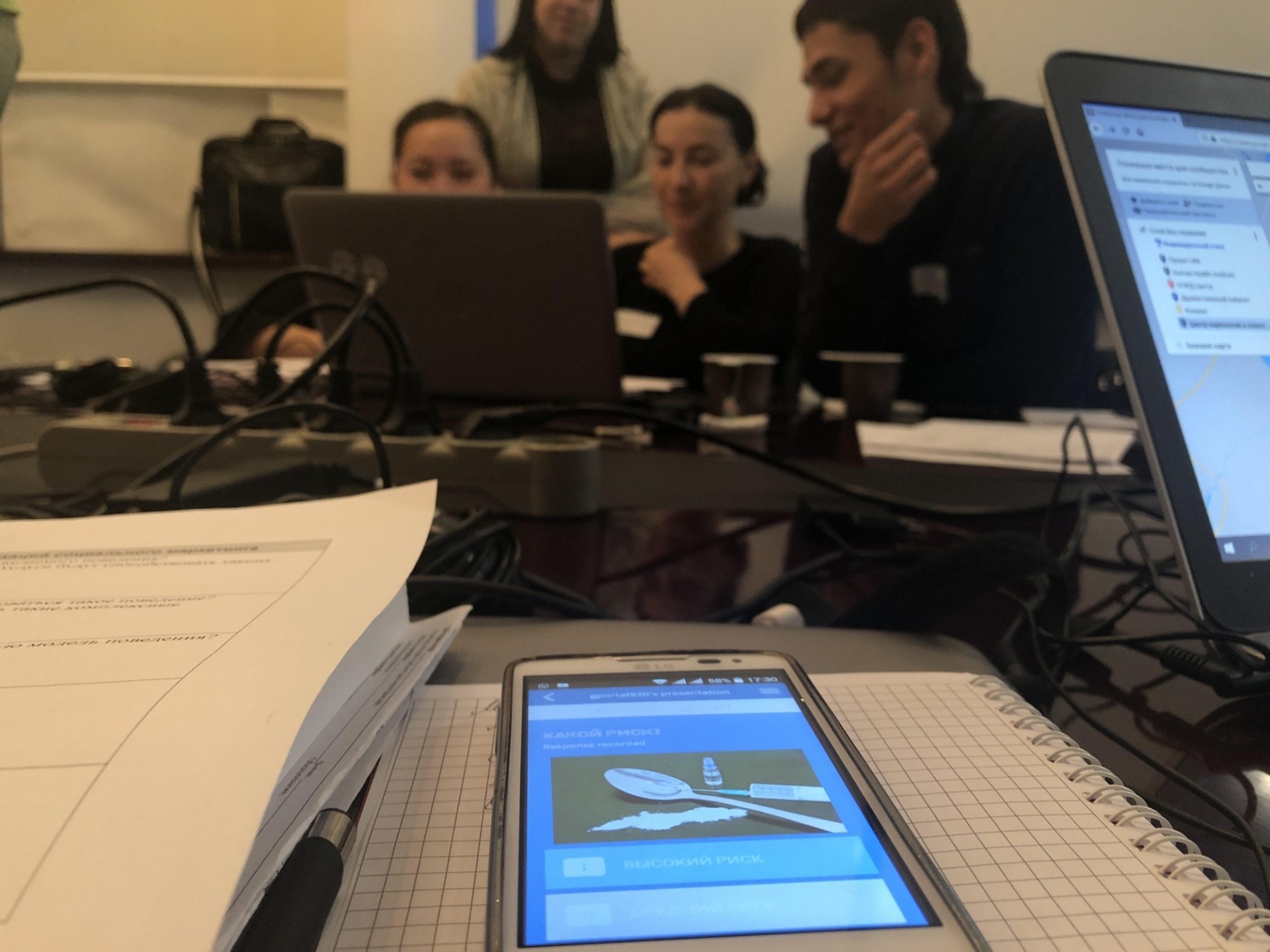
Note: "UNI Innovator Gate" is now known as UNInnovator as of October 2020
A mentor says to his mentee: “I know a little bit of what you are feeling. There were a lot of years when I was just waiting to die. My wish for you is that you can sit across the room and speak to someone the same way I’m speaking to you one day, maybe 17 years from now.” This article in the Atlantic Monthly, How Mentorship Can Be Life-Changing for People Living With HIV, highlights the importance of knowing someone with a relatable experience in overall health support. In relating.
Peers have always played an important role in disseminating health tips that, when adopted, could enhance the quality of life, and -- beyond boosting morale of participants -- even save lives. One project in Kazakhstan plans to do just that. Leveraging the power of peer influence, the UNI Project intervention, “UNI Innovator Gate,” aims to help hundreds of men of sexual and gender diversity through peer-led promotion of “HIV care continuum engagement” which includes antiretroviral medication adherence and HIV testing.
UNI Innovator Gate will be delivered over four sessions to small groups of men of sexual and gender diversity by focusing on strengthening their capacity to share tips or lifehacks of HIV care continuum engagement via face-to-face as well as digital communication. The high internet-use rate in Kazakhstan makes internet-based, digital health promotion an attractive and viable approach. UNI Innovator Gate incorporates vocabulary, technologies, and strategies of information communication commonly used in digital social network methods.
In preparation for the UNI Innovator Gate intervention rollout, the UNI Project held a week-long training that incorporated many of these elements in December 2018 for nine of its staff facilitators, including Site Coordinators, Research Assistants, and Clinical Coordinators from Almaty, Astana, and Shymkent (all three study cities).
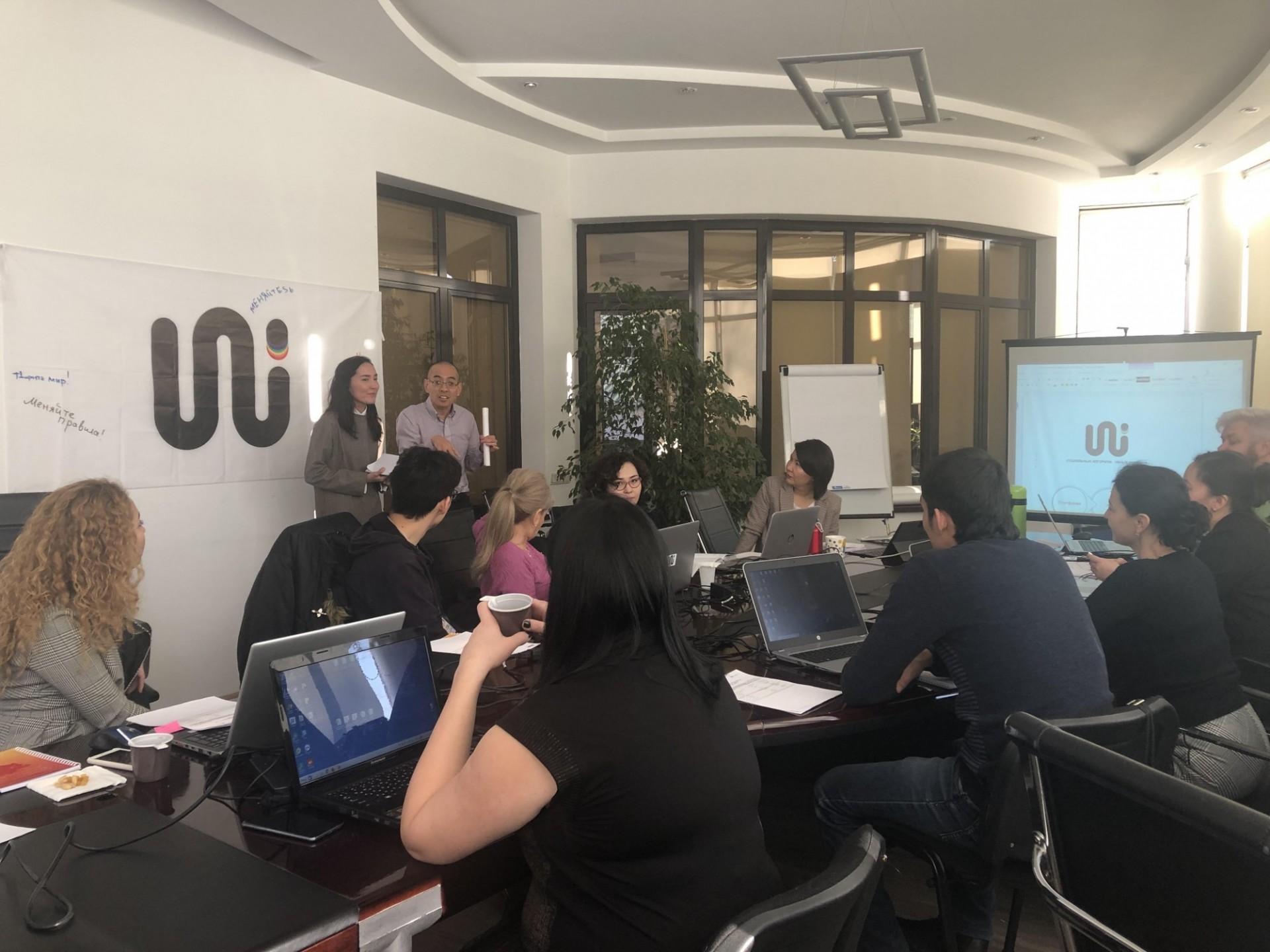
The training focused on enhancing the staff’s familiarity with the intervention contents, and skills in group facilitation in preparation for facilitating the UNI Innovator Gate intervention.
The training was informative. I am inspired that this program will help many men who have sex with men to get tested for HIV and STIs (and receive treatment if necessary), that they will gain skills how to post on social media, how to use Google Maps, and other things, which will help other men who have sex with men use these services. By this, I hope this community will develop and become stronger in Kazakhstan.
--Training participant
The training was delivered through a joint-demonstration by Project Director Gulnara Zhakupova and Project Coordinator Vitaliy Vinogradov, and through role plays involving the rest of the staff.
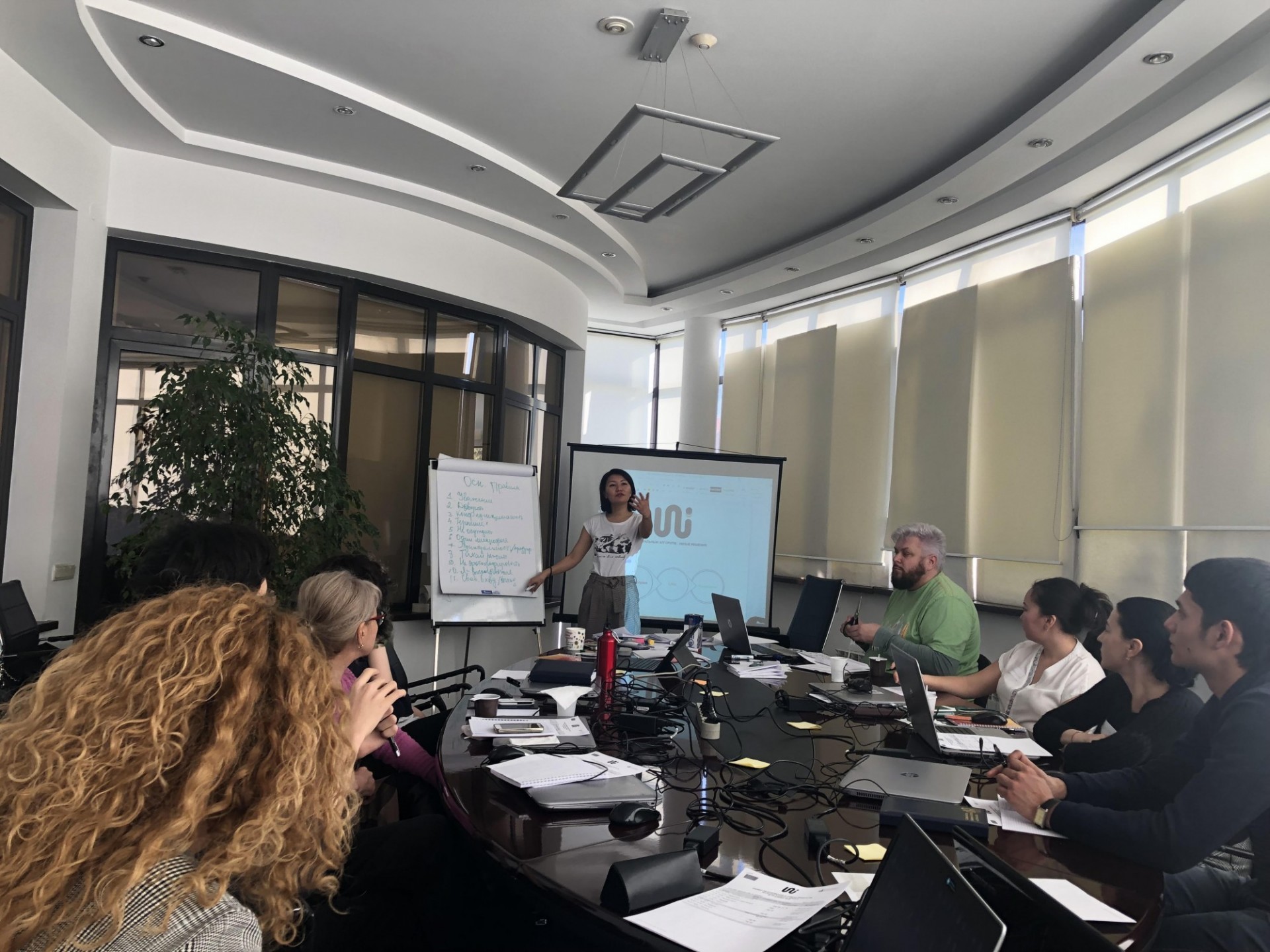
The training primarily covered intervention facilitation and a booster training on overall study procedures, but had another important component: engaging facilitators in the types of concepts and digital communications the men they are serving will be likely to understand and use.
One example is the concept of lifehack(ing), which describes a trick or a shortcut that improves life quality, productivity, and efficiency. It’s not a stretch: points along the HIV care continuum can be understood as lifehacks of HIV prevention. To demonstrate the concept, the staff built a selfie stand with office supplies -- a more affordable alternative to commercial selfie stands.
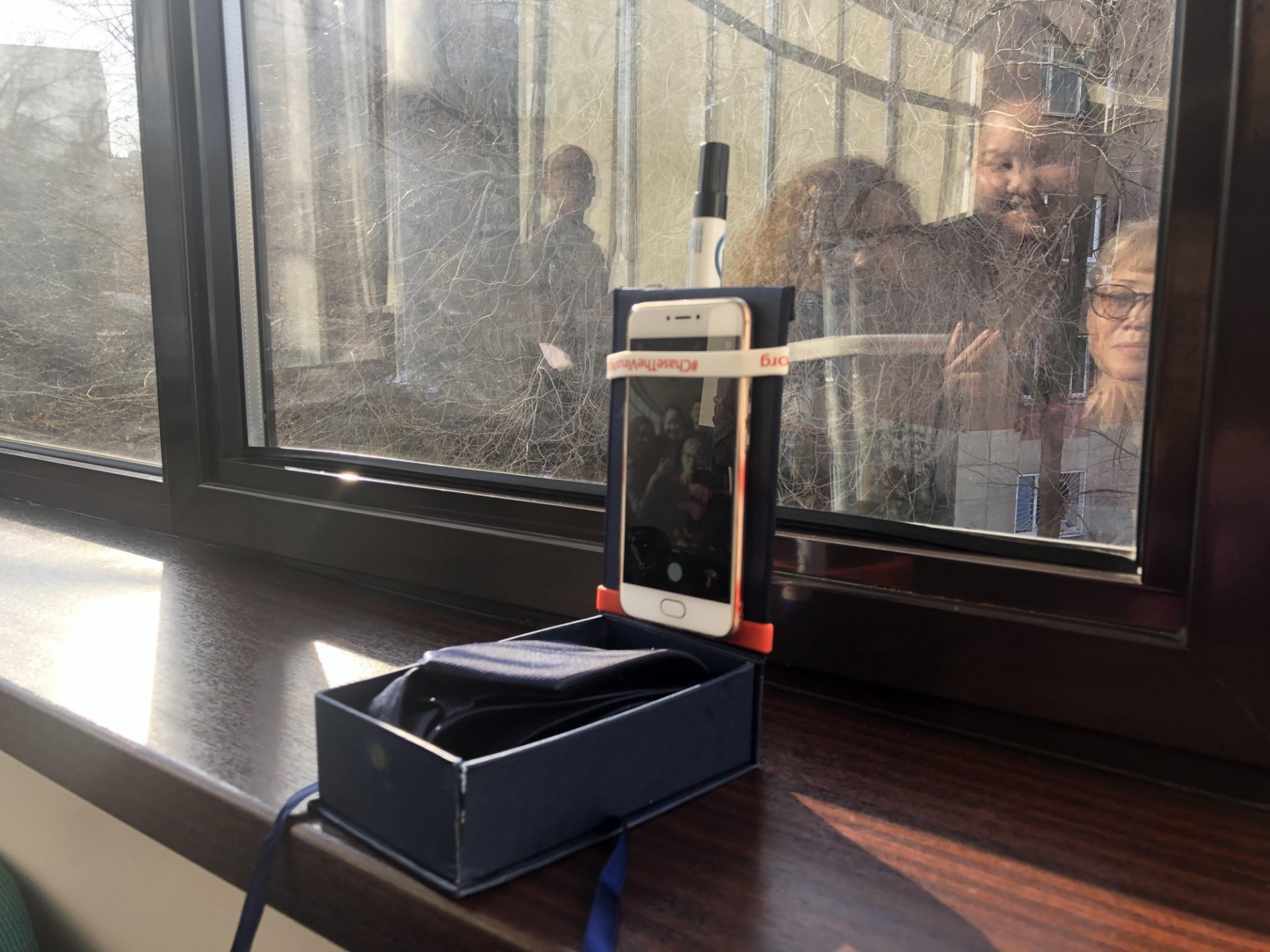
I liked that the training also emphasized developing leadership skills in oneself, which truly inspired me....there is nothing more valuable than the moment when [a community member] leaves the office with the realization that they are not alone and there are people who care.
--Altynay, Intervention Training participant
Another example is the use of Polleverywhere, a live audience engagement tool. During the training, Polleverywhere helped to make participant engagement more efficient and entertaining. With Polleverywhere, participants can anonymously respond to discussion questions on their personal electronic devices, and see their and others’ responses instantly displayed onto a screen.
Facilitators will be using Polleverywhere, which is embedded in UNI Innovator Gate intervention, by activating a poll for the men participating in the intervention. The men access a poll through a link, and can respond anonymously and view the composite results real-time. Anonymity is critical to creating a safe space where the men, who face stigma, can respond in confidence.
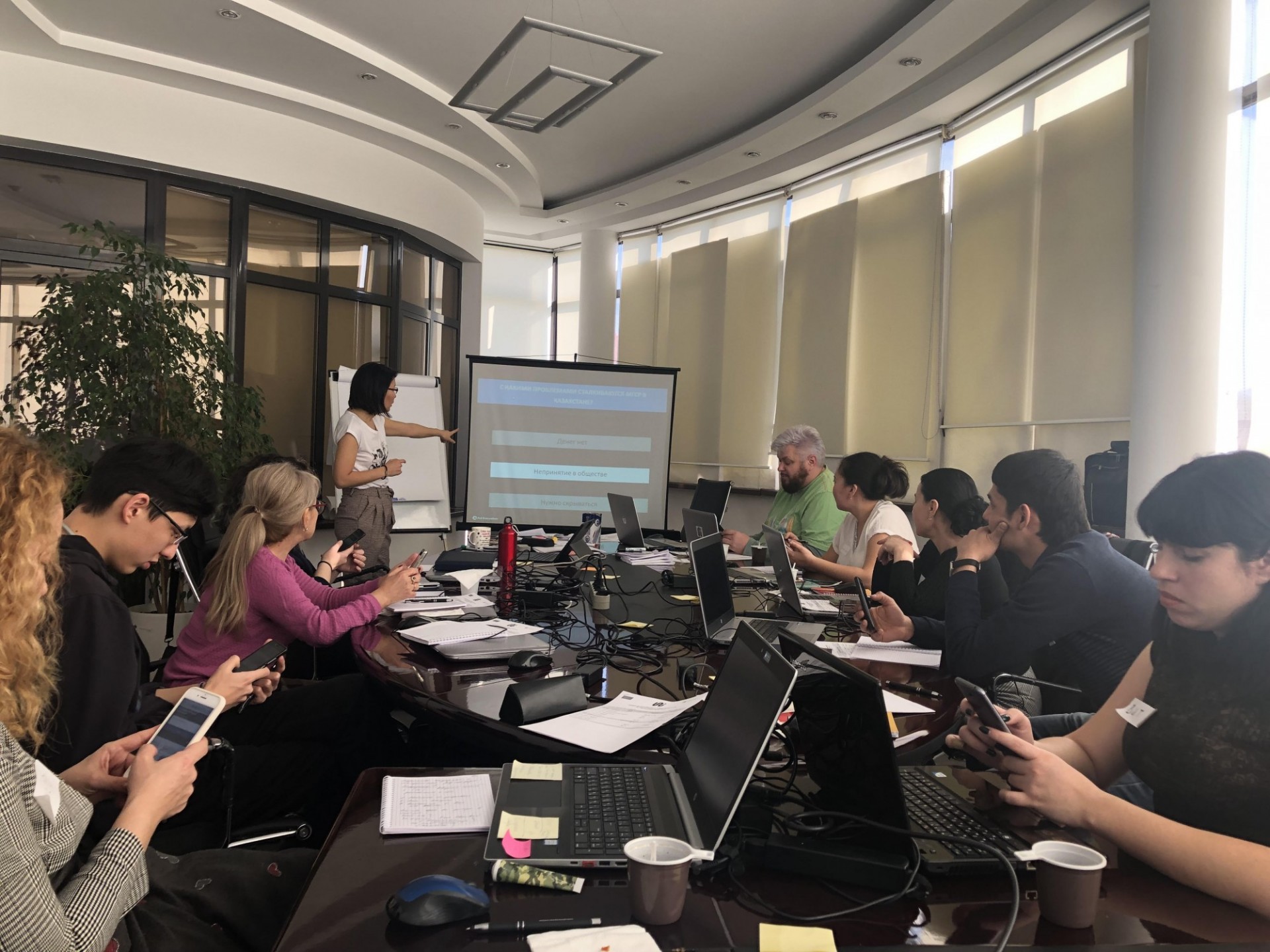
Questions for the men may include items such as “What are some available HIV care prevention points that you know?” They may also ask about sensitive topics such as their sexual or substance history.
The training was very helpful. I came to this project because it is my aspiration to help people get rid of the obstacles. HIV is not a death sentence, knowing the right information people live with it long and full life.
--Ferangiz Hasanova, Training participant
Facilitators also enhanced their skills by practicing group facilitation through roleplay, which really helped them build confidence in their roles.
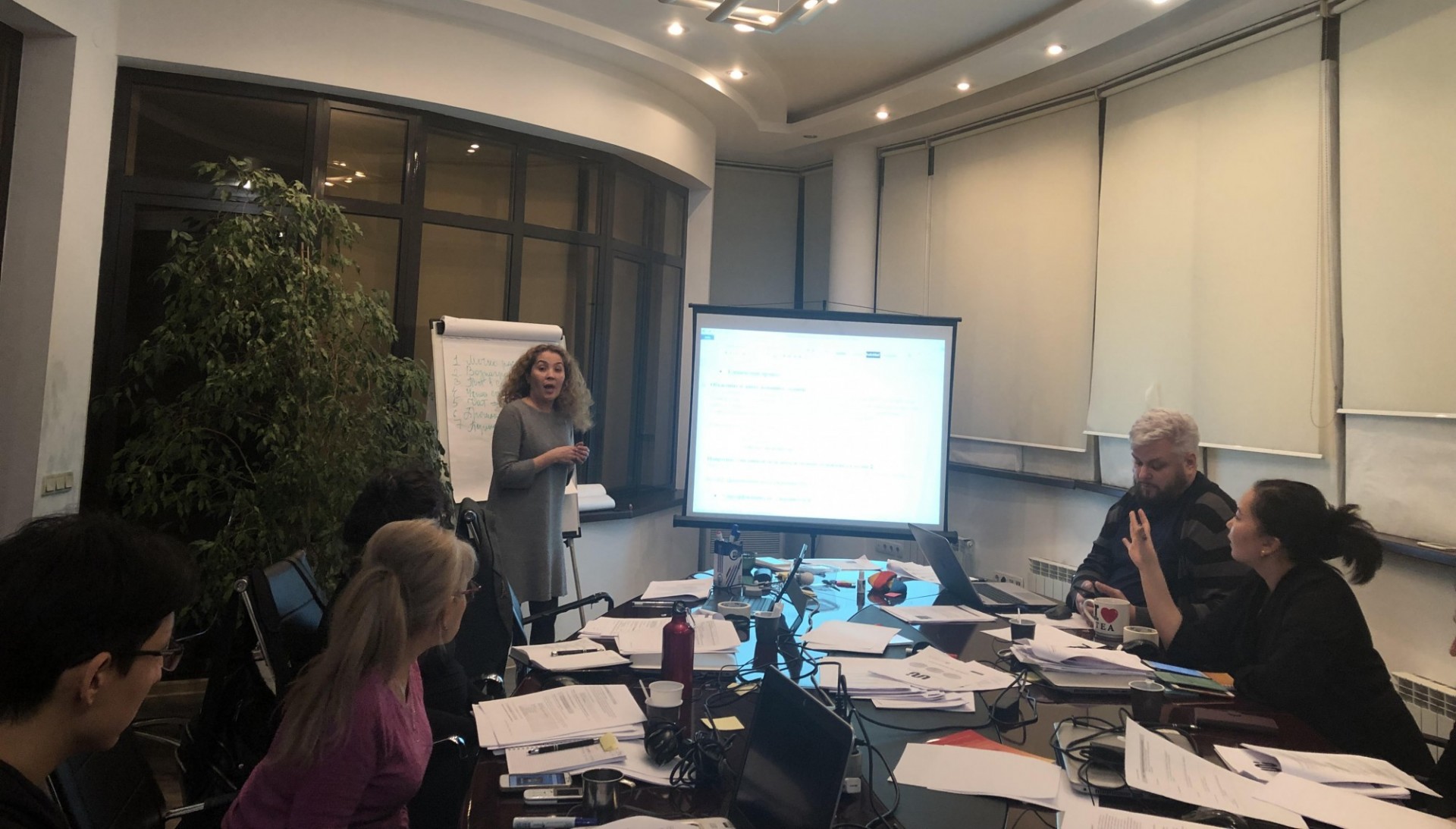
For me personally, the source of inspiration is the result of the work. I hope that we will ... help [participants] solve their problems (not only related to health). I thank you, Vitaliy, YG and Elwin for organizing such a wonderful training.
--Training Participant
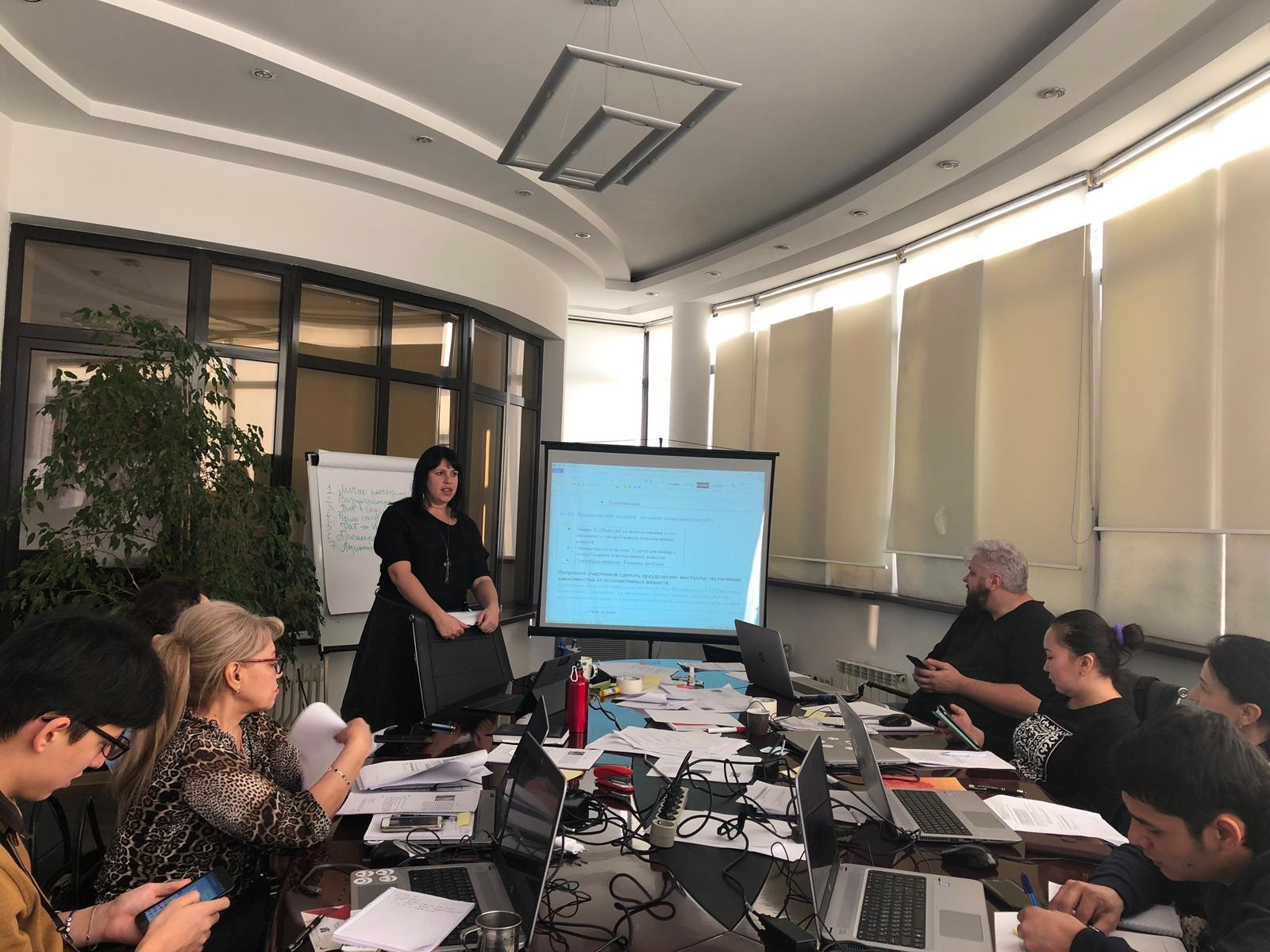
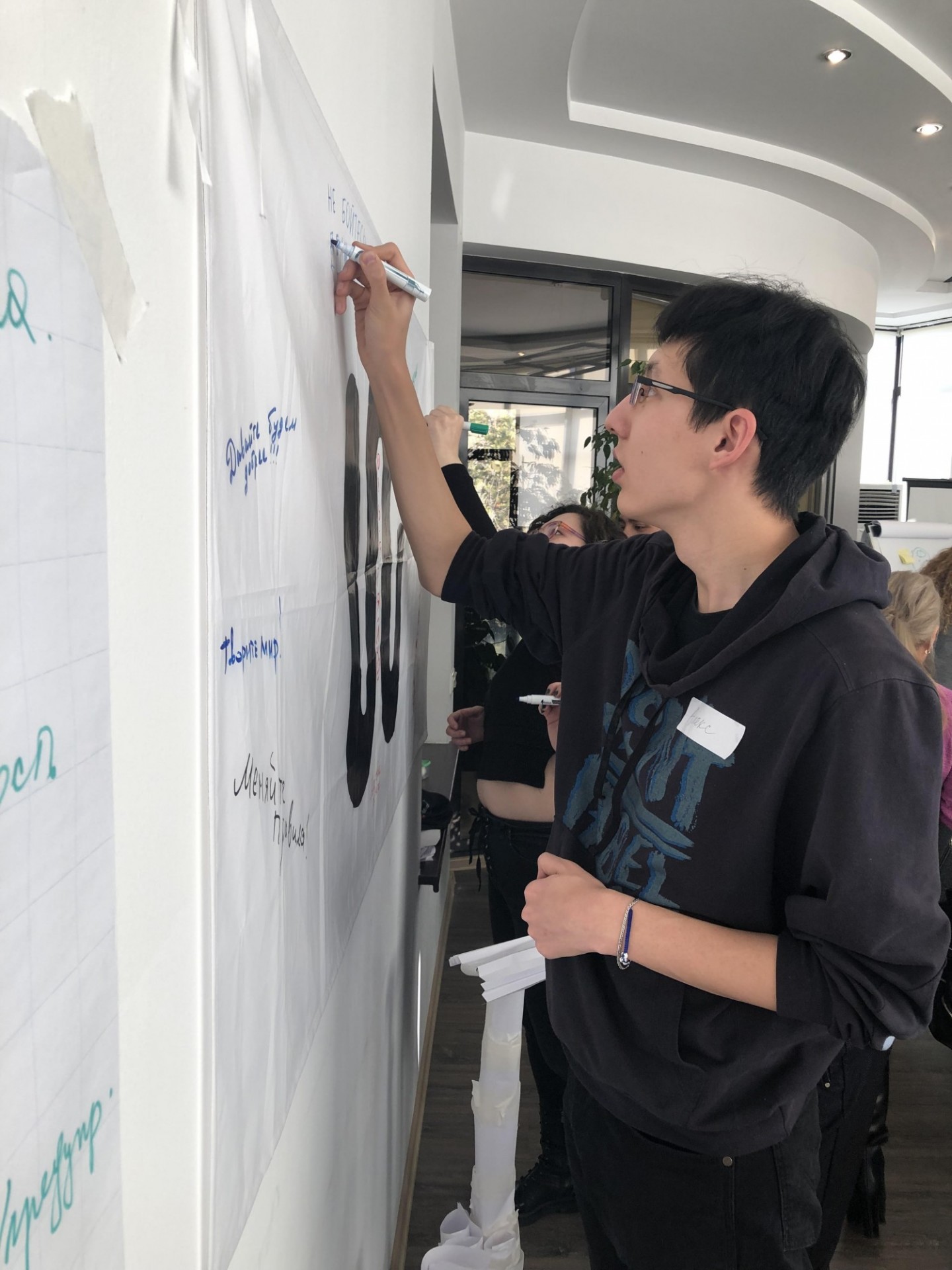
One of the last activities of the intervention’s final session, Session 4, involved contributing to the UNI Legacy Wall. On the wall, participants are invited to leave graphic and/or textual messages of encouragement for public display, and to serve as a positive reminder of strength, hope, and support across the men of sexual and gender diversity networks.
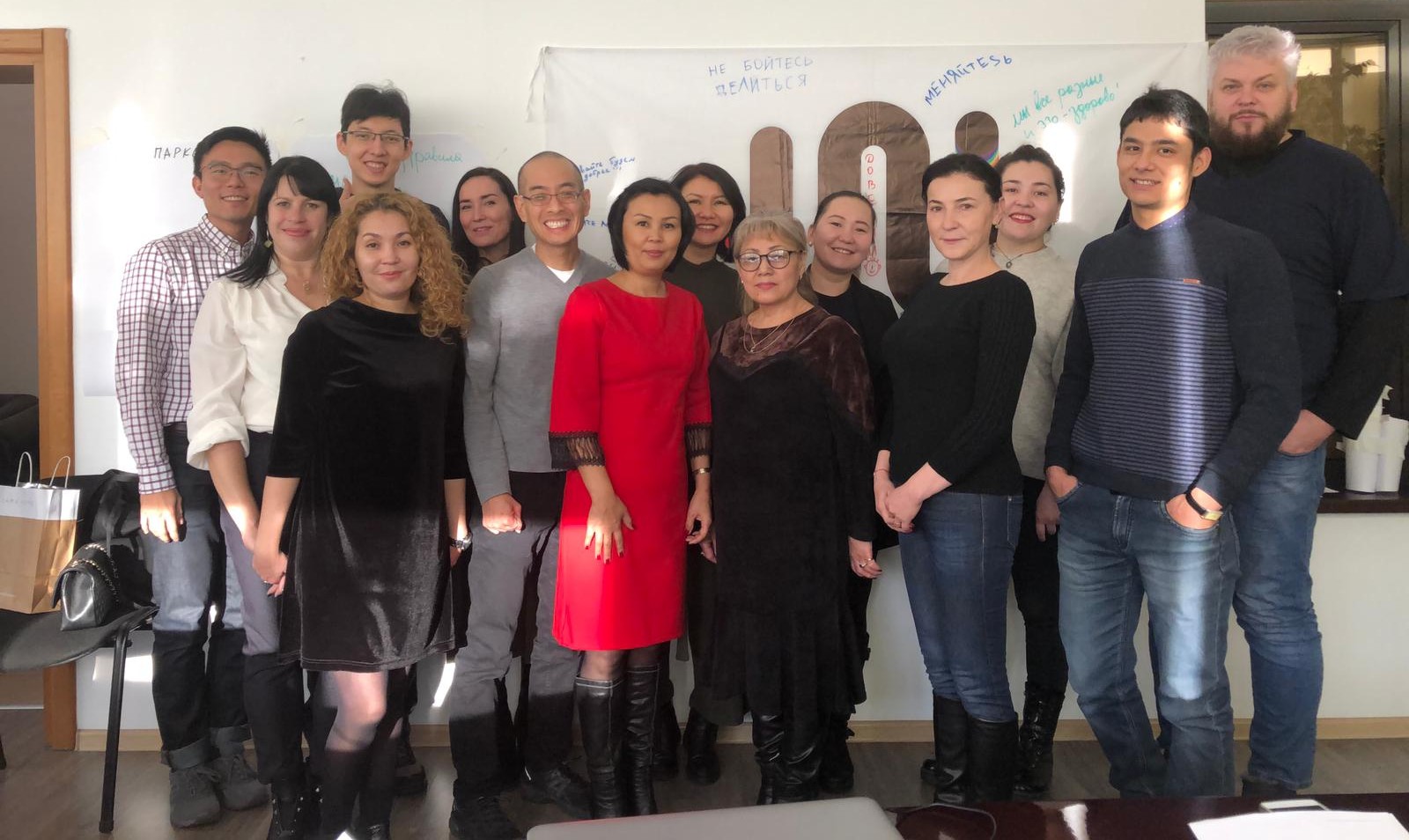
Next, field staff will be implementing UNI Innovator Gate at UNI field offices in all study cities, starting with Almaty early this year followed by another city in six months, then the last in another six months. It is anticipated that about 500-700 men will receive intervention throughout the entire study of three years.
Study leader Yong Gun (YG) Lee is excited about the intervention launch.
From a researcher’s standpoint I want our participants to be interested and engaged in the intervention, learning not just about HIV intervention treatment but also the social marketing skills they can use in other areas of their life. To be engaged in HIV care. It starts with knowing your status, then participants having the tools to support one another and themselves. For example, how do you handle the stigma?
To learn more about UNI, see the project announcement here.
